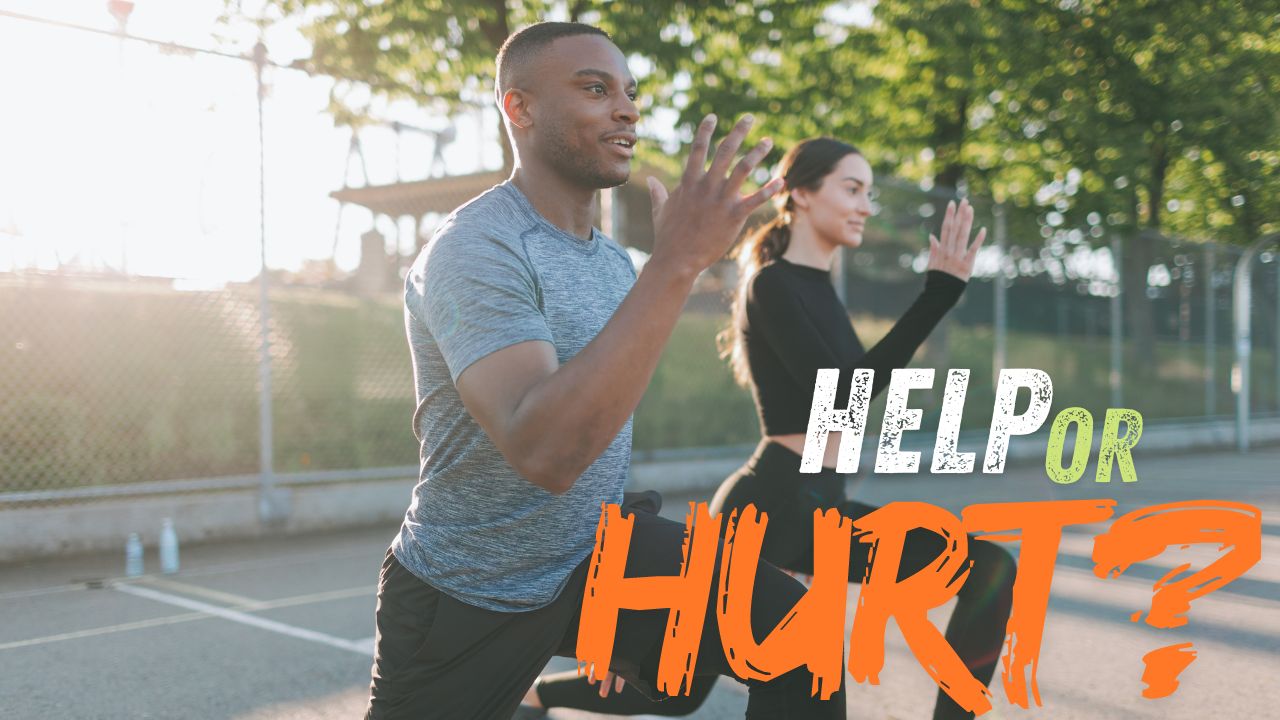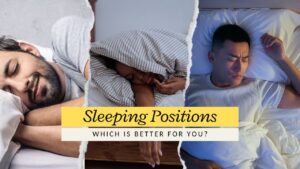The Effects of Exercise and Exercise Timing on Sleep: What the Research Says
Achieving quality sleep is a cornerstone of good health, affecting everything from mood and cognitive function to physical health and longevity. In recent years, the relationship between exercise and sleep has garnered significant attention. Both the type and timing of physical activity can have profound effects on sleep quality. In this article, we explore how exercise influences sleep and discuss the optimal timing of exercise to promote restful sleep, backed by scientific studies and accurate references.
How Exercise Affects Sleep Quality
Regular physical activity is widely recognized as beneficial for improving sleep quality. Various mechanisms have been proposed to explain how exercise positively influences sleep:
- Regulation of Circadian Rhythms: Physical activity can help regulate the body’s internal clock, or circadian rhythm, making it easier to fall asleep and wake up at consistent times. A study published in the Journal of Physiology found that moderate-intensity exercise, particularly in the morning or early afternoon, can advance circadian phases, making it easier to fall asleep at night (Yamanaka et al., 2021).
- Reduction in Anxiety and Depression: Exercise is known to reduce symptoms of anxiety and depression, both of which are significant contributors to sleep disturbances. A meta-analysis in the Journal of Clinical Sleep Medicine reported that individuals who engage in regular exercise experience lower levels of stress and anxiety, which in turn contributes to better sleep quality (Passos et al., 2010).
- Increase in Sleep Duration and Efficiency: A study published in Sleep Medicine Reviews found that individuals who engaged in at least 150 minutes of moderate to vigorous activity per week had a 65% improvement in sleep quality. Additionally, they reported feeling less sleepy during the day, indicating increased sleep efficiency (Loprinzi & Cardinal, 2011).
The Role of Exercise Timing on Sleep
While the overall benefits of exercise on sleep are clear, the timing of exercise can significantly impact its effectiveness in promoting sleep.
- Morning Exercise: Engaging in physical activity in the morning can have a positive impact on sleep by helping to regulate the circadian rhythm. A study in the journal Sleep demonstrated that morning exercise (7 AM) was more effective in reducing sleep onset latency (the time it takes to fall asleep) compared to evening exercise (7 PM), suggesting that morning workouts may be more beneficial for those struggling with falling asleep (Barger et al., 2008).
- Afternoon Exercise: Exercising in the late afternoon can also be beneficial, as body temperature is naturally higher, which can enhance physical performance and help the body cool down more effectively after exercise, promoting sleepiness. Research in the Journal of Biological Rhythms indicated that exercising in the late afternoon or early evening aligns with the body’s natural peak in physical performance and can help improve sleep onset and sleep quality (Dolezal et al., 2017).
- Evening Exercise: Contrary to popular belief, evening exercise does not necessarily disrupt sleep. A study published in Sports Medicine found that moderate-intensity exercise up to 90 minutes before bedtime does not negatively affect sleep quality. In some cases, it may even improve sleep by reducing anxiety and promoting relaxation. However, high-intensity workouts close to bedtime may elevate heart rate and core body temperature, potentially delaying sleep onset (Kredlow et al., 2015).
Optimal Exercise for Sleep: What Type Works Best?
The type of exercise performed also plays a role in sleep quality:
- Aerobic Exercise: Activities like walking, running, and cycling have been shown to improve sleep quality significantly. A study in the journal Mental Health and Physical Activity found that moderate-intensity aerobic exercise for 16 weeks led to improvements in sleep quality, mood, and overall quality of life in older adults with sleep complaints (King et al., 2008).
- Resistance Training: Strength training exercises have also been associated with improved sleep. A study in the Journal of Strength and Conditioning Research found that older adults who engaged in resistance training twice a week for 12 weeks reported better sleep quality compared to those who did not exercise (Kaleth et al., 2015).
- Yoga and Stretching: Gentle forms of exercise such as yoga and stretching can enhance relaxation, reduce stress, and improve sleep quality. A study in the journal Alternative Therapies in Health and Medicine found that regular yoga practice improved sleep quality and reduced insomnia symptoms in individuals with chronic insomnia (Halpern et al., 2013).
Conclusion: The Best Time to Exercise for Better Sleep
In summary, regular exercise is a powerful tool for improving sleep quality. The timing of exercise, however, can influence its effectiveness. Morning and afternoon exercise are generally more conducive to better sleep, aligning with the body’s natural rhythms. While evening exercise can still be beneficial, it should be approached with caution, particularly with high-intensity activities close to bedtime. By understanding the relationship between exercise and sleep, individuals can optimize their physical activity routines to promote restful and rejuvenating sleep.
By incorporating regular exercise into daily routines and paying attention to the timing of these activities, individuals can significantly enhance their sleep quality and overall health.
References
- Barger, L. K., Wright, K. P., Hughes, R. J., & Czeisler, C. A. (2008). Daily exercise facilitates phase delays of circadian melatonin rhythm in very dim light. Sleep, 31(4), 535-542.
- Dolezal, B. A., Neufeld, E. V., Boland, D. M., Martin, J. L., & Cooper, C. B. (2017). Interrelationship between sleep and exercise: A systematic review. Advances in Preventive Medicine, 2017, 1364387.
- Halpern, J., Cohen, M., Kennedy, G., Reece, J., & Cahan, C. (2013). Yoga for improving sleep quality and quality of life for older adults. Alternative Therapies in Health and Medicine, 19(5), 37-46.
- Kaleth, A. S., Hawkins, B. J., Ang, D. C., & Kadimpati, S. (2015). Resistance training improves sleep and fatigue in overweight/obese older adults with osteoarthritis. Journal of Strength and Conditioning Research, 29(3), 586-592.
- King, A. C., Pruitt, L. A., Woo, S., Castro, C. M., Ahn, D. K., & Wilcox, S. (2008). Effects of moderate-intensity exercise on polysomnographic and subjective sleep quality in older adults with mild to moderate sleep complaints. Mental Health and Physical Activity, 1(2), 69-76.
- Kredlow, M. A., Capozzoli, M. C., Hearon, B. A., Calkins, A. W., & Otto, M. W. (2015). The effects of physical activity on sleep: A meta-analytic review. Journal of Behavioral Medicine, 38(3), 427-449.
- Loprinzi, P. D., & Cardinal, B. J. (2011). Association between objectively-measured physical activity and sleep, NHANES 2005–2006. Mental Health and Physical Activity, 4(2), 65-69.
- Passos, G. S., Poyares, D., Santana, M. G., D’Aurea, C. V., Youngstedt, S. D., Tufik, S., & de Mello, M. T. (2010). Exercise improves immune function and alters cytokine profile in the elderly. Journal of Clinical Sleep Medicine, 6(3), 276-282.
- Yamanaka, Y., Hashimoto, S., Takasu, N. N., Tanahashi, Y., Nishide, S. Y., Honma, S., & Honma, K. (2021). Morning exercise advances the phase of the circadian clock in humans. Journal of Physiology, 599(6), 1891-1904.
*Affiliate Disclaimer*: Some of the links in this article may be affiliate links, which means I may earn a small commission if you click through and make a purchase, at no additional cost to you. As an affiliate marketer, I earn from qualifying purchases. This helps me provide free content to my readers. Thank you for your support!
*Medical Disclaimer*: The information provided in this article is for educational and informational purposes only and is not intended as medical advice. We are not healthcare professionals, and the content should not be used as a substitute for professional medical consultation, diagnosis, or treatment. Always seek the advice of your physician or another qualified healthcare provider with any questions you may have regarding a medical condition or before starting any new supplements, medications, or health-related changes.





